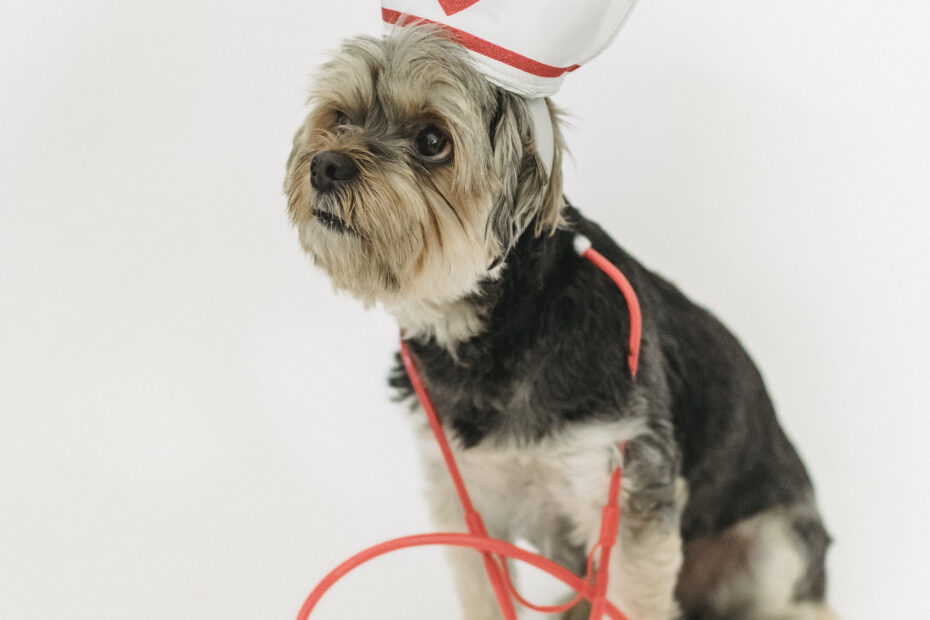Understanding Veterinary Professional Liability Insurance and Its Importance for Veterinarians
What is Veterinary Professional Liability Insurance?
Veterinary professional liability insurance is a type of insurance that protects veterinarians from financial loss due to claims or lawsuits related to their professional services. This type of insurance covers legal expenses, court costs, and damages awarded to the plaintiff in case of a lawsuit. It is also known as malpractice insurance or errors and omissions (E&O) insurance.
Why is Veterinary Professional Liability Insurance Important for Veterinarians?
Veterinarians provide medical care to animals, and like any medical profession, there is always a risk of something going wrong. Even with the best intentions and efforts, mistakes can happen, which can lead to injuries or even death of an animal. In such cases, the veterinarian may face a lawsuit or claim for damages. Without proper insurance coverage, the veterinarian may have to bear the financial burden of legal fees and damages awarded out-of-pocket.
Additionally, veterinary professional liability insurance helps protect the reputation of the veterinarian. A lawsuit or claim can damage the reputation of a veterinarian and affect their ability to practice in their field. With proper coverage, veterinarians can rest assured that they are protected against such risks.
How Veterinary Professional Liability Insurance Protects Veterinarians from Lawsuits and Claims
What Does Veterinary Professional Liability Insurance Cover?
Veterinary professional liability insurance typically provides coverage for:
- Legal defense costs: This includes attorney fees, court costs, expert witness fees, etc.
- Judgments or settlements: The policy covers damages awarded by a court or settlement reached outside of court.
- Lost income: If a veterinarian has to take time off work due to a lawsuit or claim against them.
- Third-party property damage: If a veterinarian damages someone else’s property while providing services.
How Does Veterinary Professional Liability Insurance Work?
If a claim or lawsuit is filed against a veterinarian, they should notify their insurance provider immediately. The insurance company will then assign an attorney to represent the veterinarian and cover legal expenses. The insurer will also investigate the claim to determine its validity. If the claim is found to be valid, the insurer will negotiate a settlement or pay any judgment awarded by the court.
Common Scenarios Where Veterinarians May Need to Rely on Their Professional Liability Insurance
Mistakes Made During Surgery or Treatment
Even with proper training and experience, veterinarians may make mistakes during surgery or treatment that can cause harm to an animal. In such cases, the pet owner may file a lawsuit against the veterinarian for damages.
Failure to Diagnose or Misdiagnosis of an Illness
Veterinarians may also face claims if they fail to diagnose or misdiagnose an illness in an animal. This can lead to delayed treatment and worsened health conditions, resulting in financial losses for the pet owner.
Factors to Consider When Selecting a Policy for Veterinary Professional Liability Insurance
Coverage Limits
The coverage limit refers to the maximum amount that an insurer will pay out in case of a claim or lawsuit. It is essential to choose coverage limits that are appropriate for your practice’s size and risk level.
Deductible Amounts
The deductible amount is the portion of costs that you must pay out-of-pocket before your insurance coverage kicks in. Higher deductibles typically result in lower premiums but can also increase your financial burden in case of a claim.
Ensuring Adequate Coverage with Veterinary Professional Liability Insurance in the Event of a Claim or Lawsuit
Documenting Services and Procedures
Proper documentation of services and procedures can help protect veterinarians in case of a claim or lawsuit. It is essential to maintain accurate medical records, informed consent forms, and other relevant documents.
Regularly Reviewing and Updating Insurance Coverage
As your practice grows, your insurance needs may change. It is essential to regularly review and update your insurance coverage to ensure that you have adequate protection in case of a claim or lawsuit.
In conclusion, veterinary professional liability insurance is essential for protecting veterinary professionals from potential lawsuits and financial losses due to malpractice claims. It provides peace of mind and ensures that veterinary practices can continue providing quality care to their clients and patients without fear of legal repercussions.
How much does professional liability insurance cost in Alberta?
The price for professional liability insurance varies, with annual costs ranging between $150 and $2,000. The exact amount depends on the level of coverage needed and the degree of risk involved in your profession.
Is PLP mandatory?
Professional Liability Protection (PLP) is a requirement for all members except those in the Non-Practising Class.
What is a vet liability?
Veterinary liability insurance is insurance that provides protection for veterinarians against claims of negligence from customers who believe their pet was harmed by the veterinarian. This type of insurance is similar to medical malpractice insurance for healthcare professionals.
What is included in a professional liability policy?
Professional liability insurance provides coverage for a variety of claims, including negligence, copyright infringement, and personal injury. This type of policy can cover damages resulting from both actions you took and actions you failed to take.
What is the minimum liability insurance in Alberta?
In order to drive a vehicle, it is required by provincial law to have at least $200,000 of insurance coverage for personal liability and property damage as well as accident benefits. Any additional coverage in Alberta is considered optional for auto insurance.
What is professional liability insurance Alberta?
Professional liability insurance is intended to financially protect your business in the event of claims made by customers who have suffered financial losses due to negligence, misconduct, or failure to deliver services as promised.
